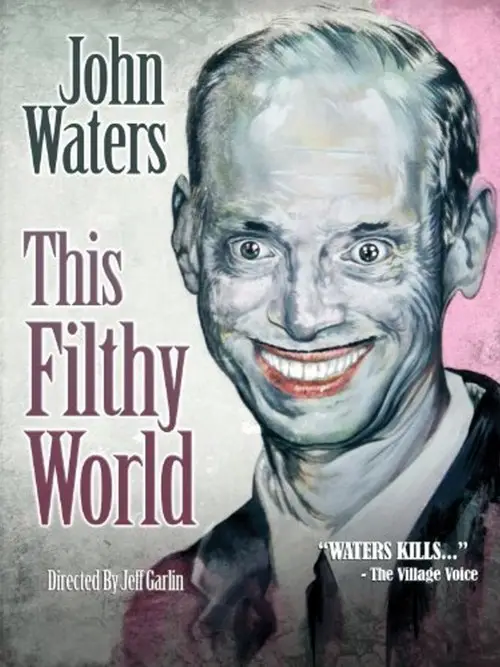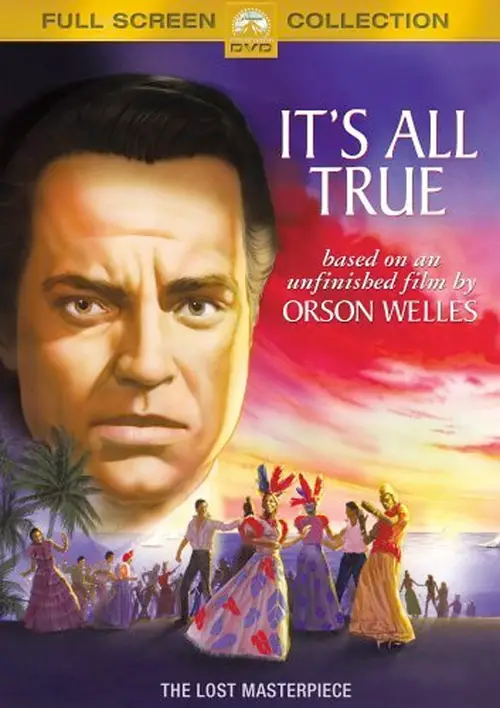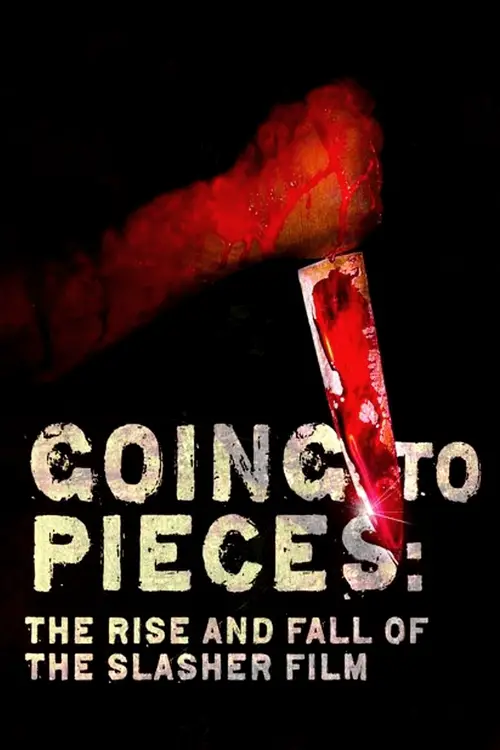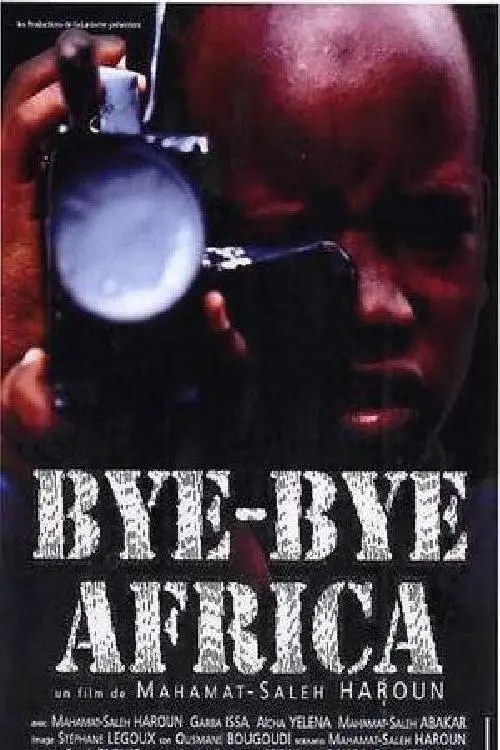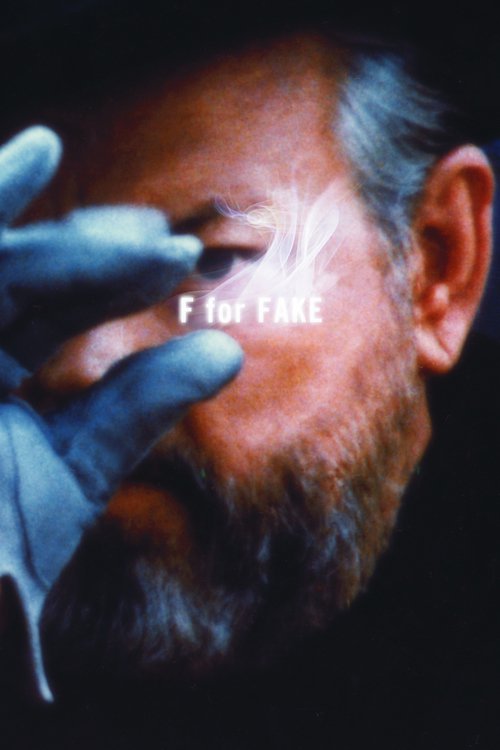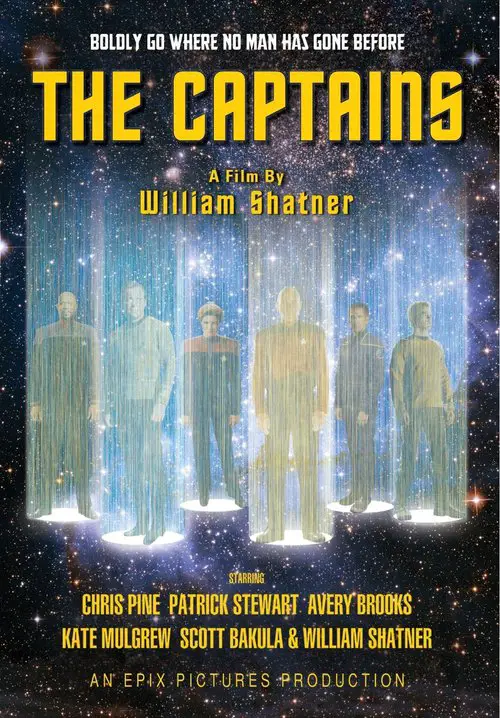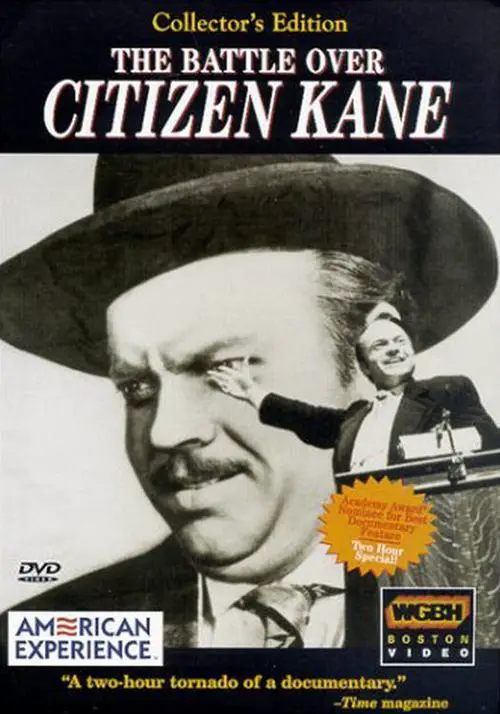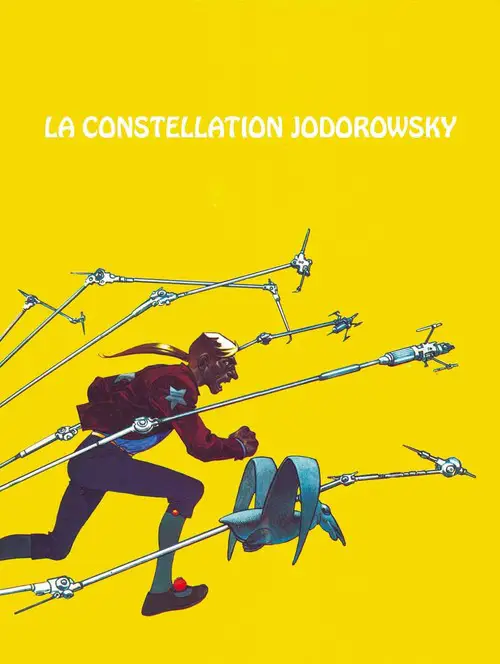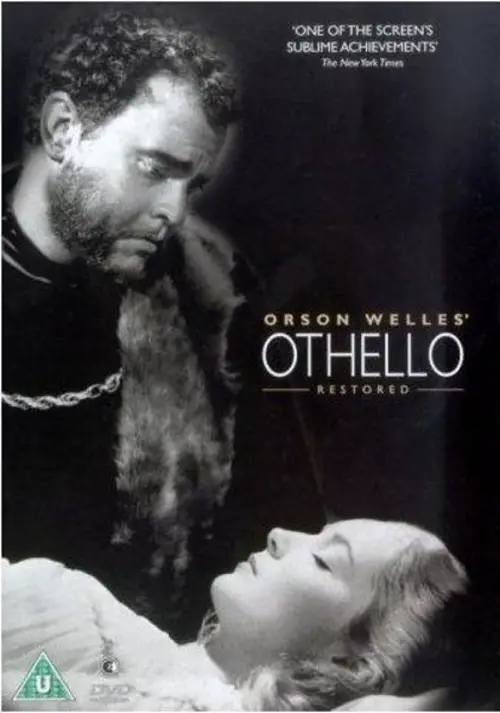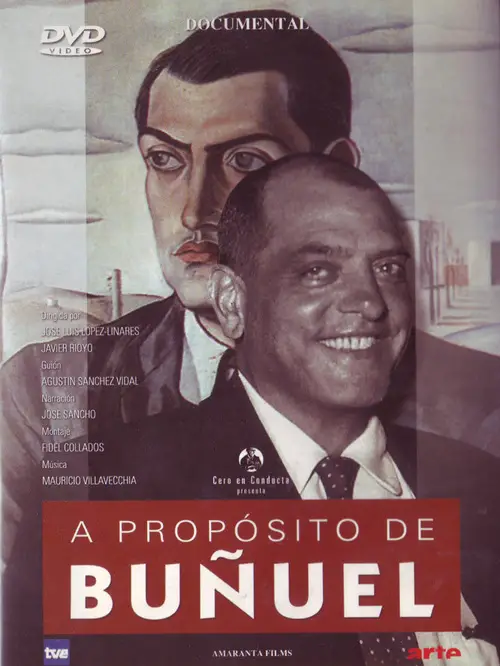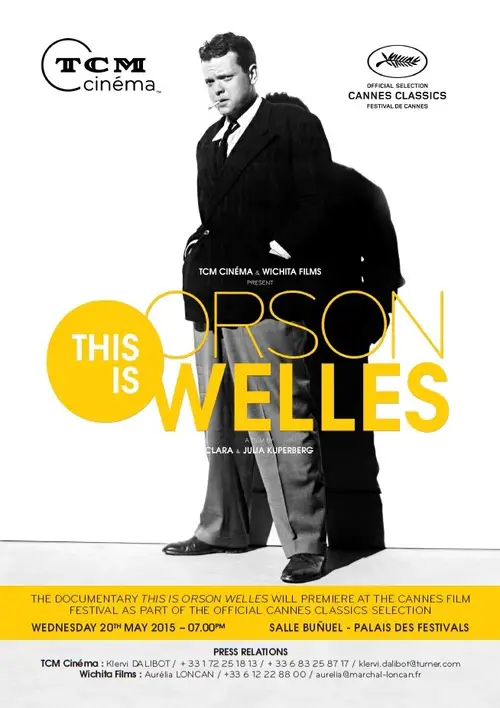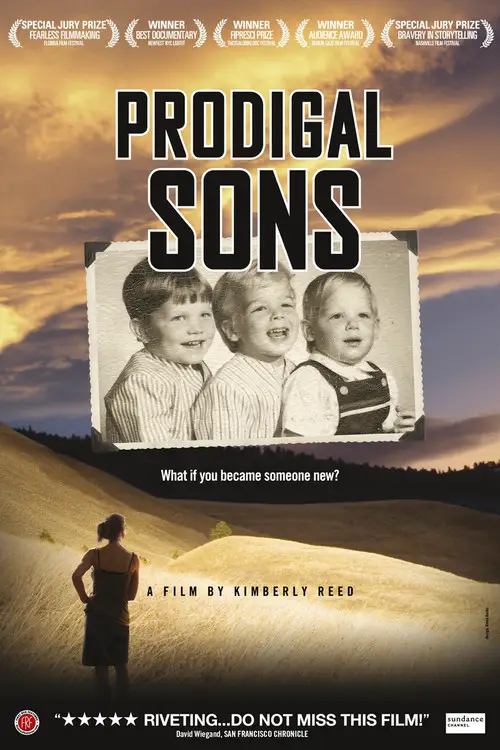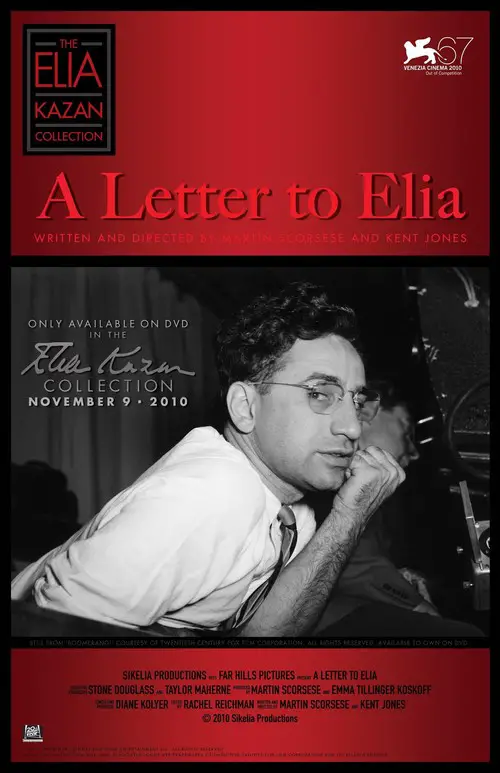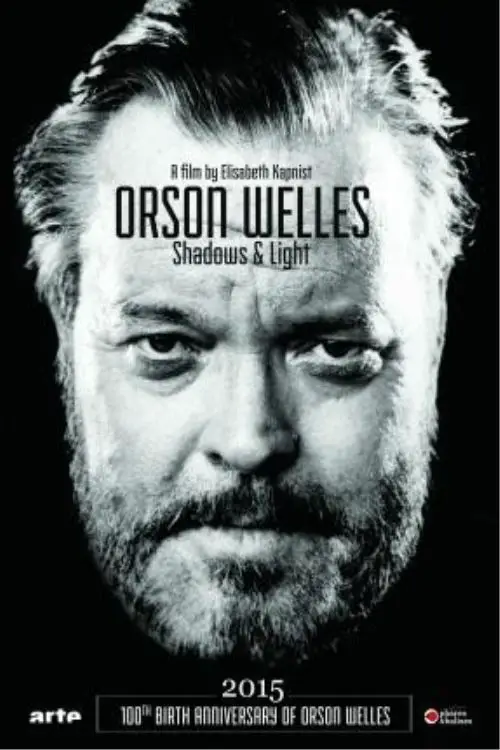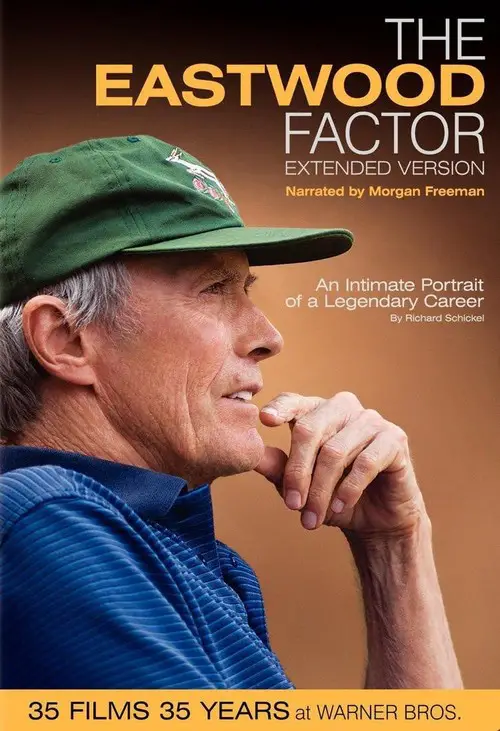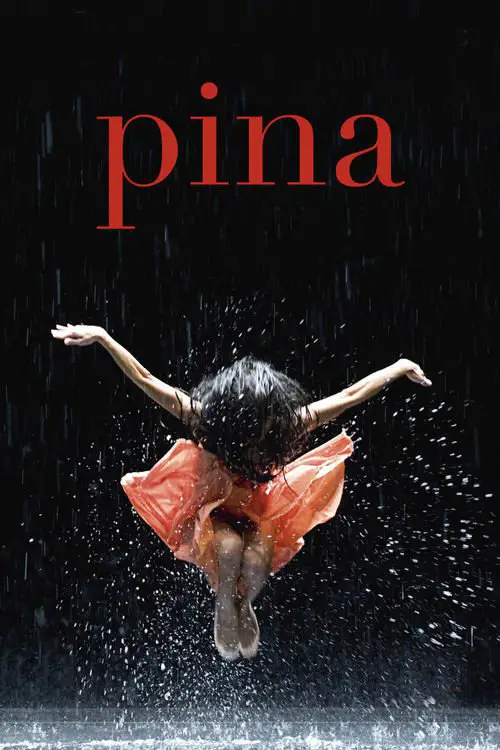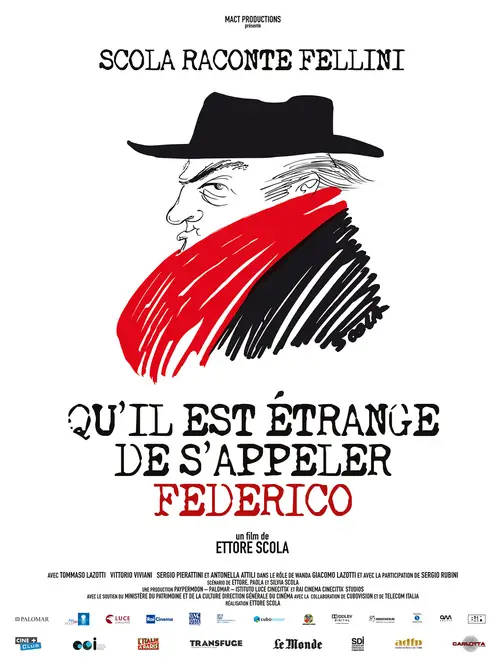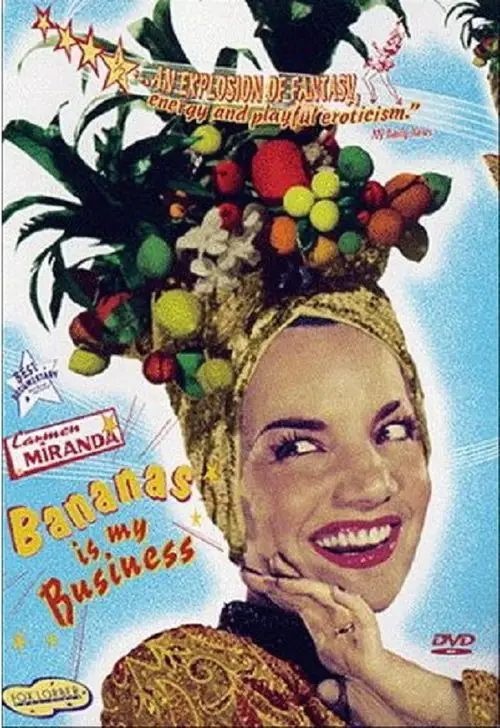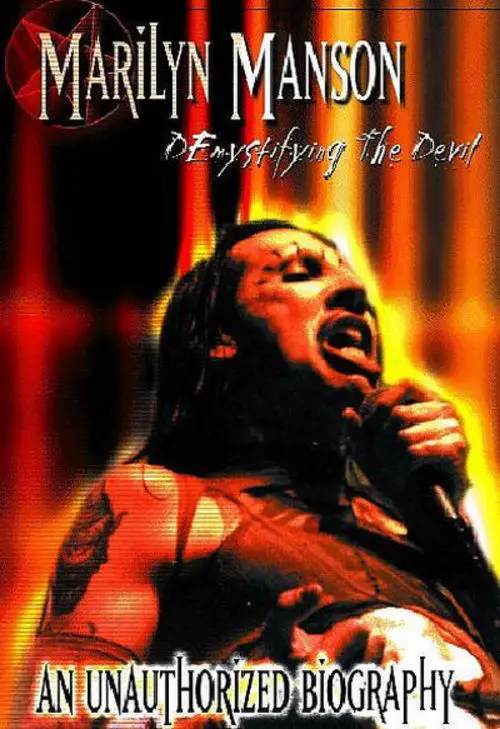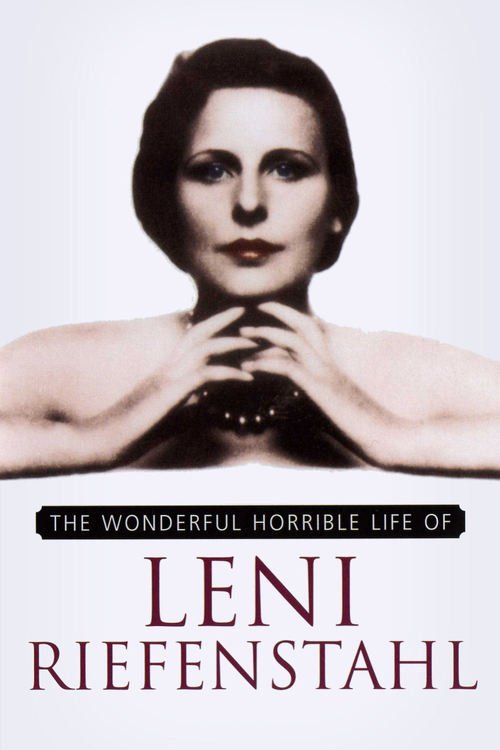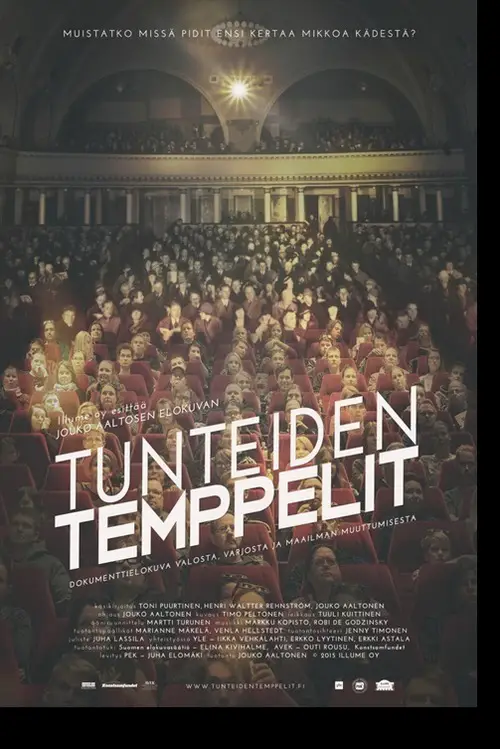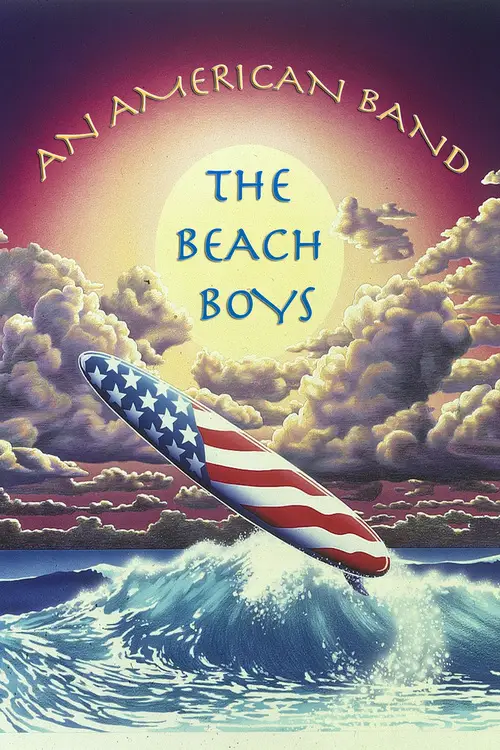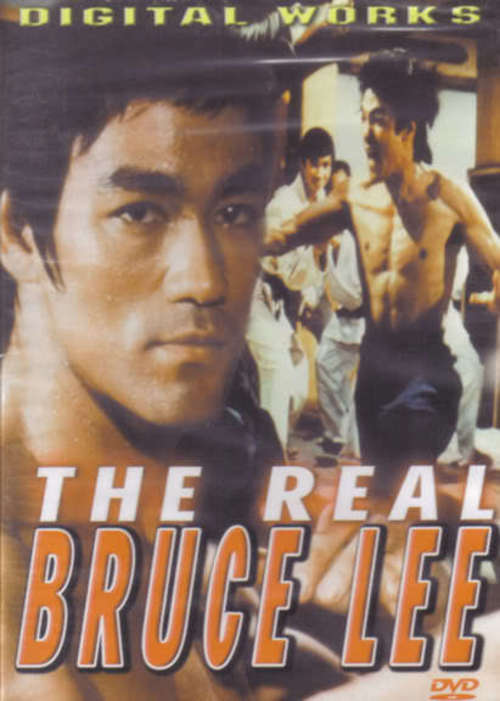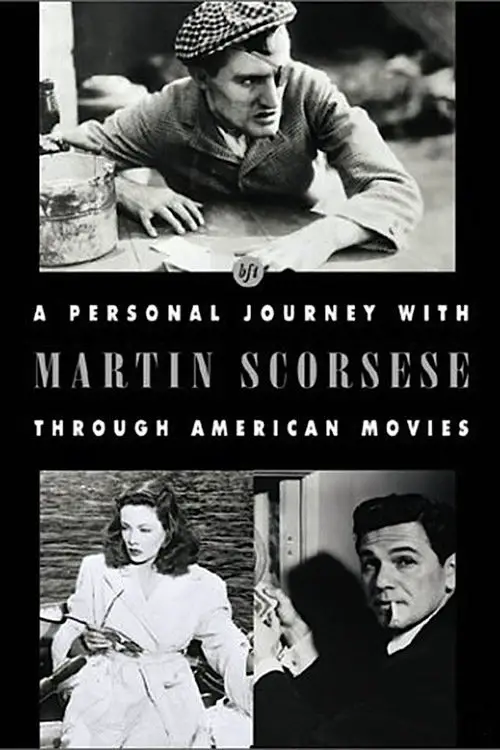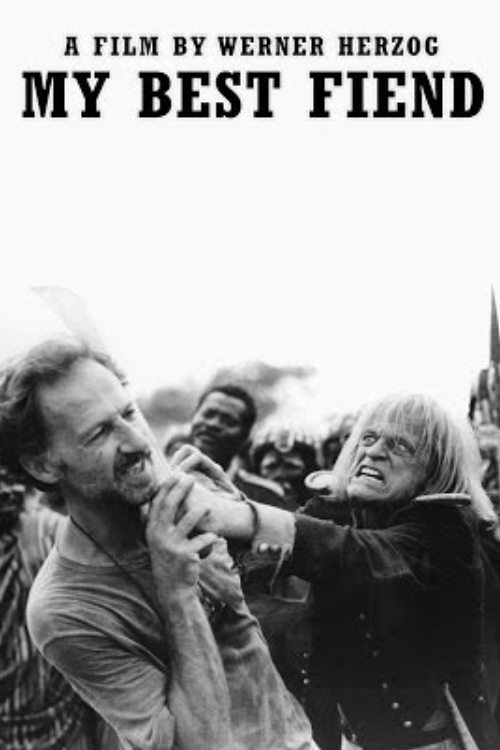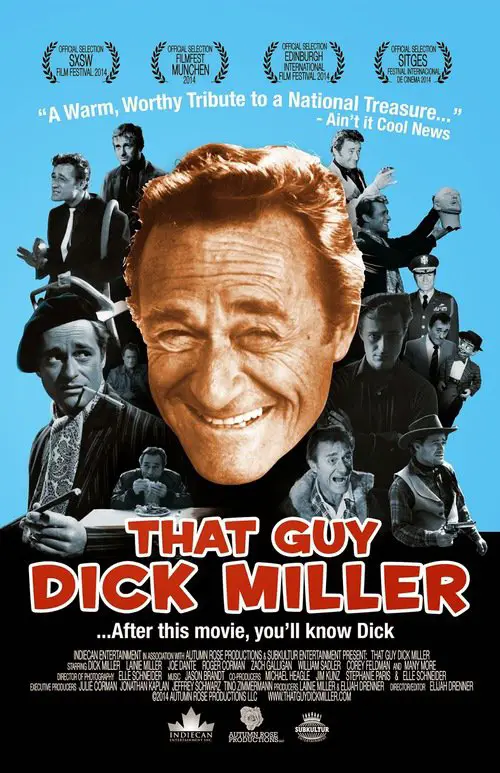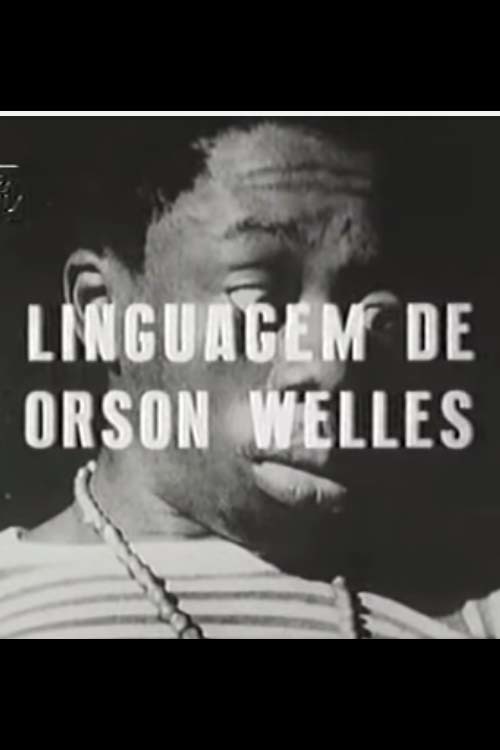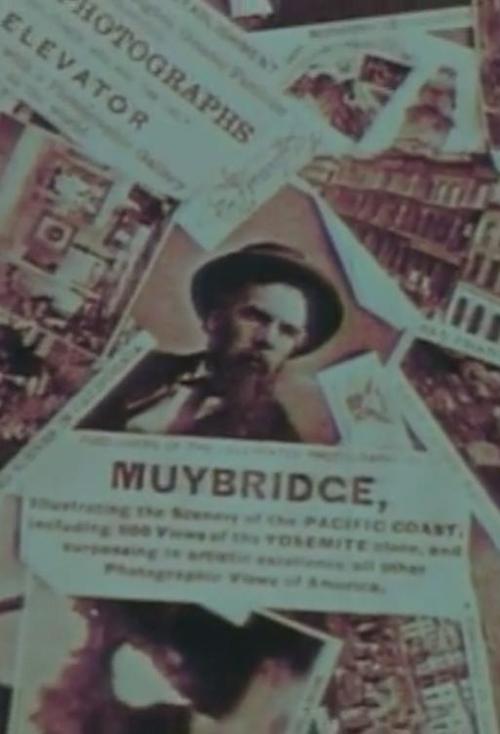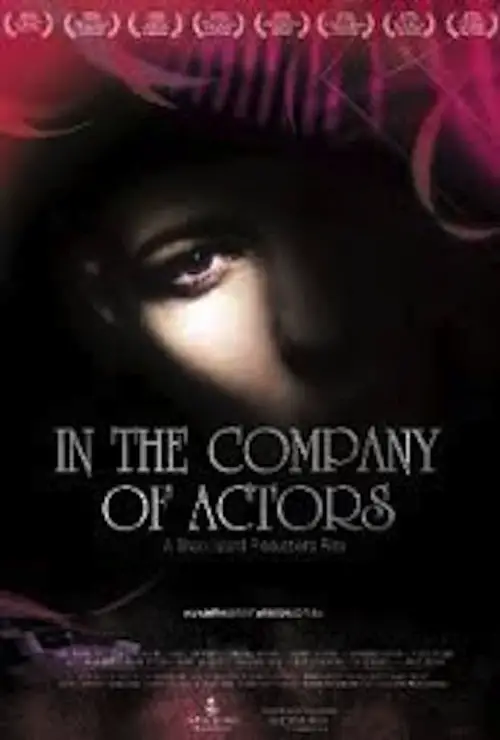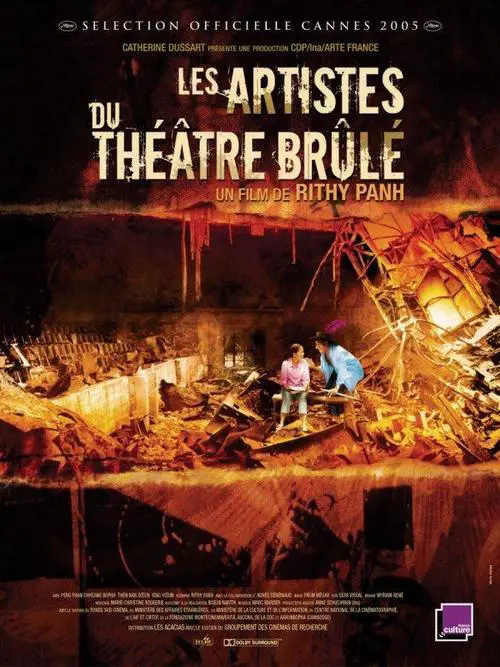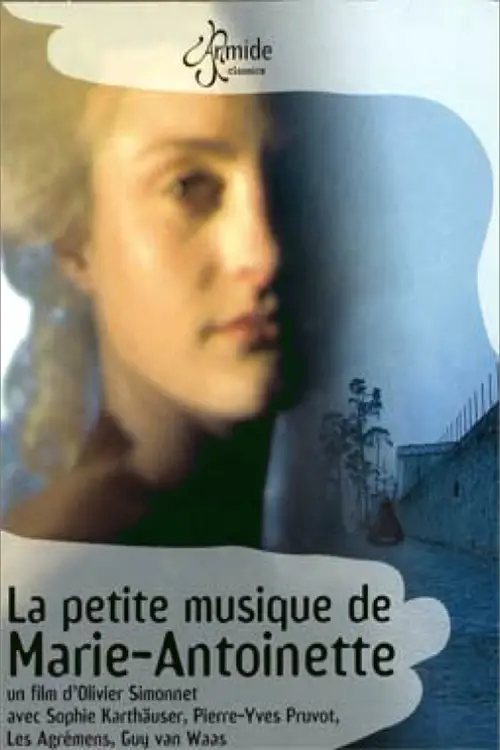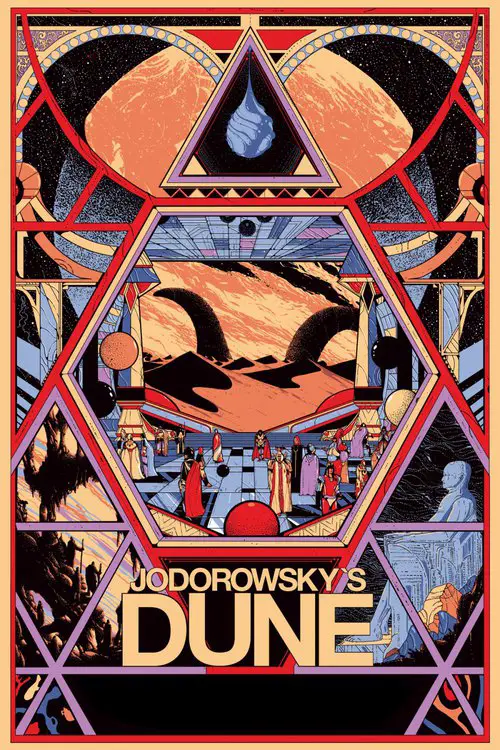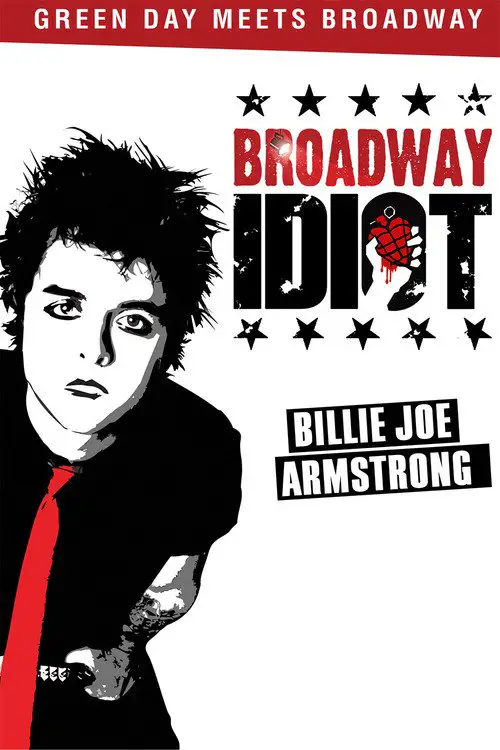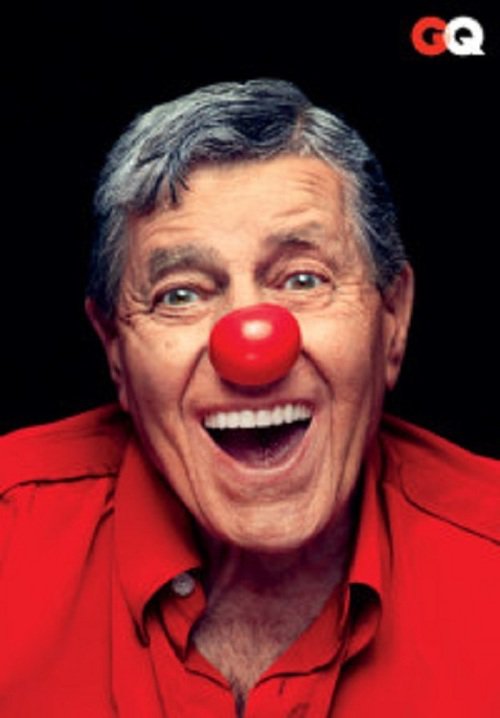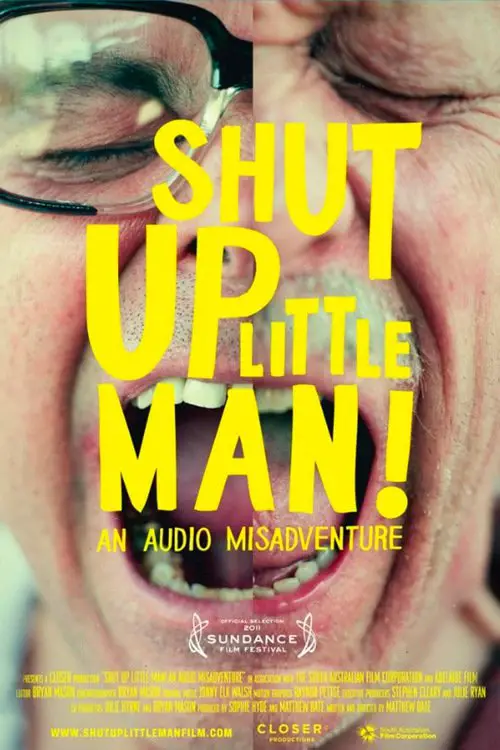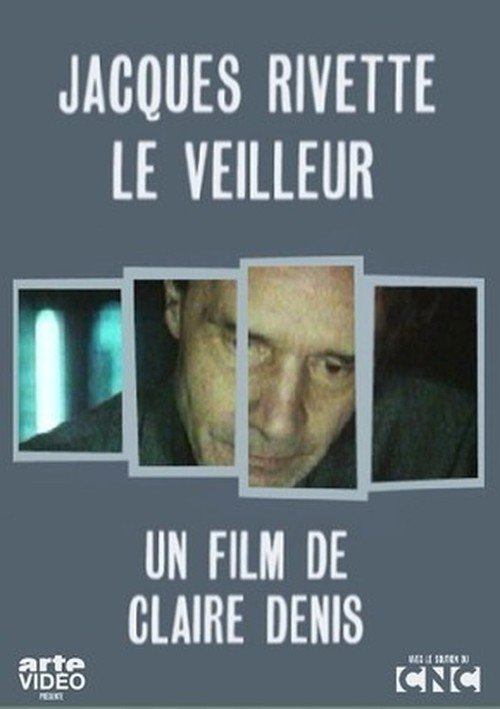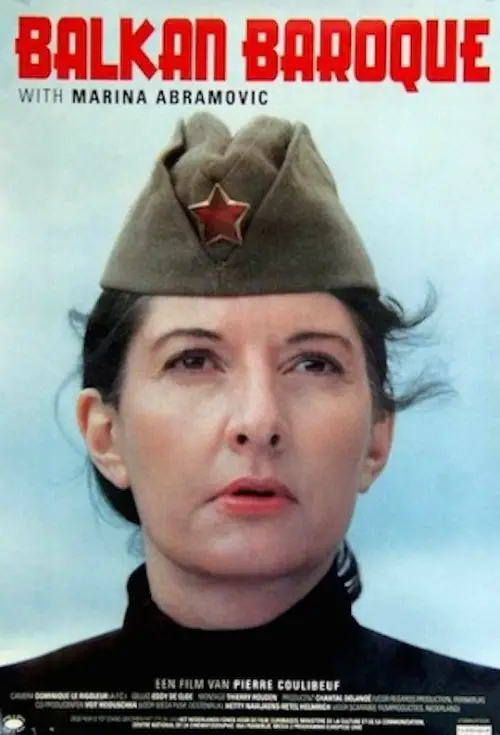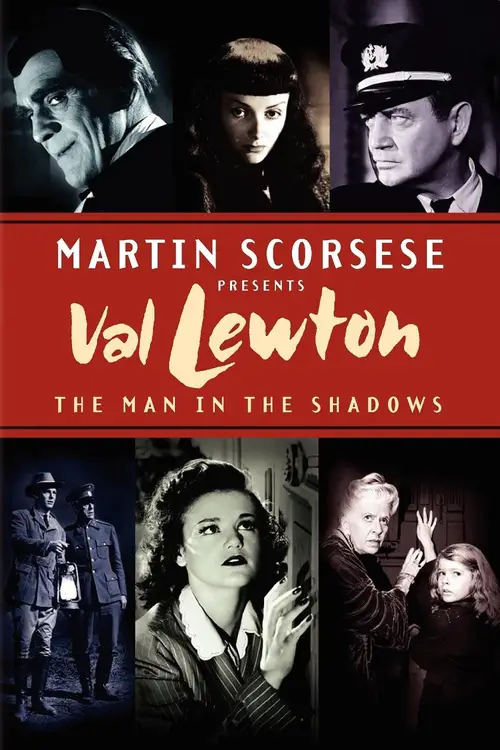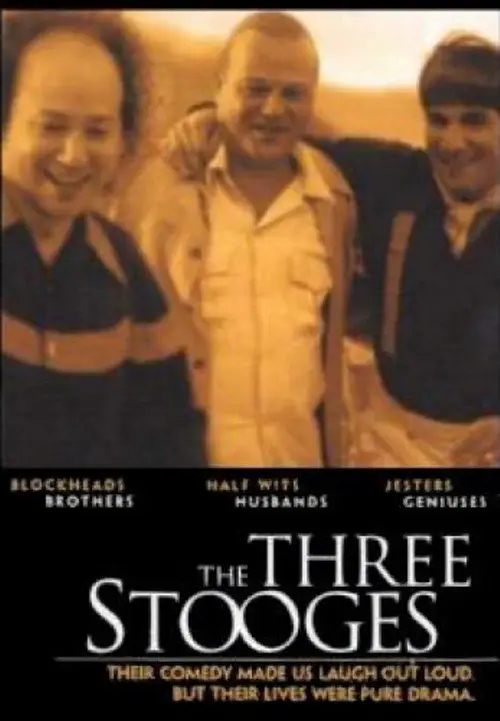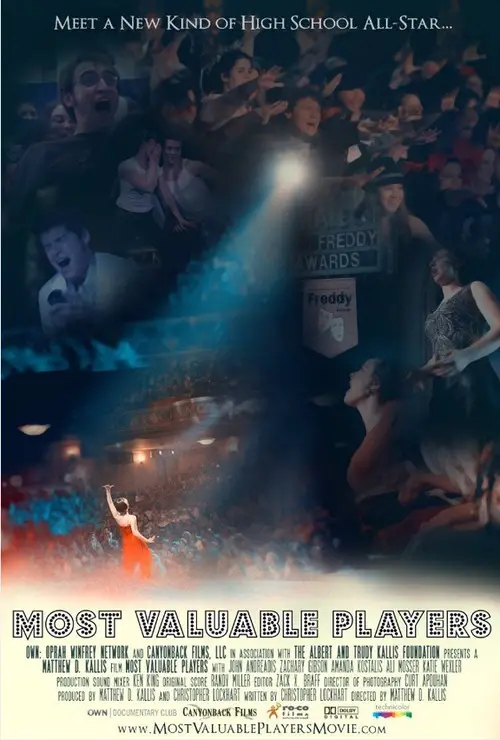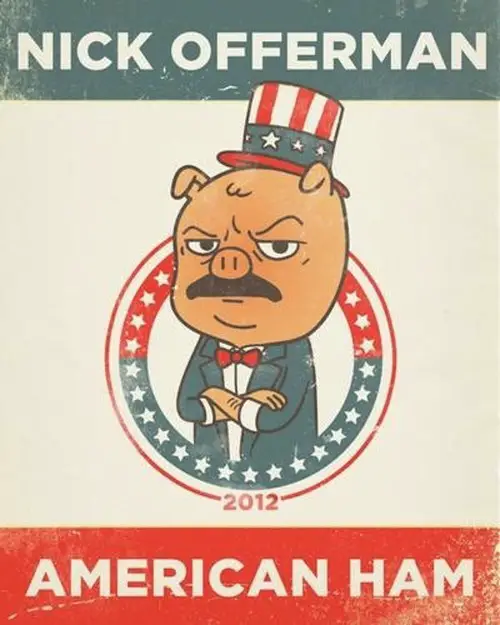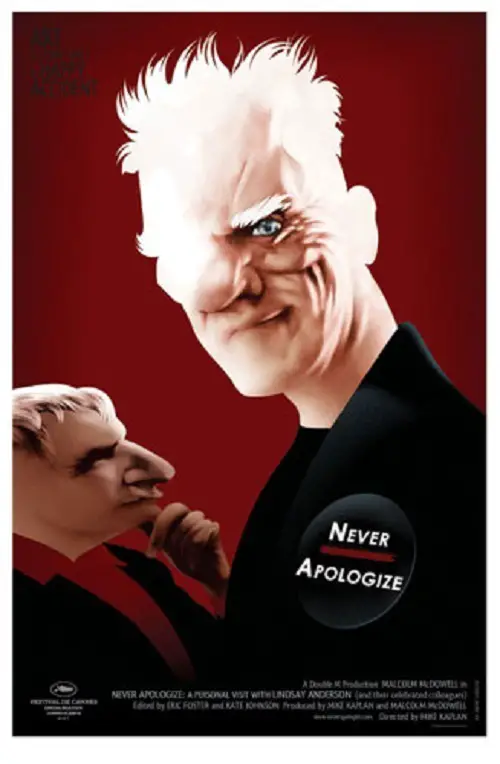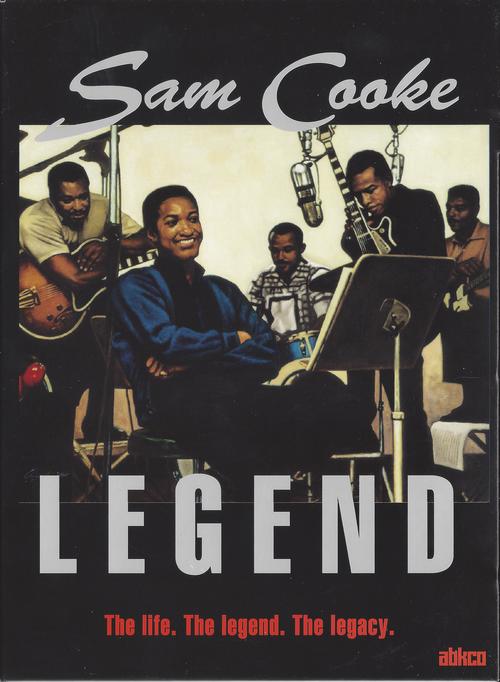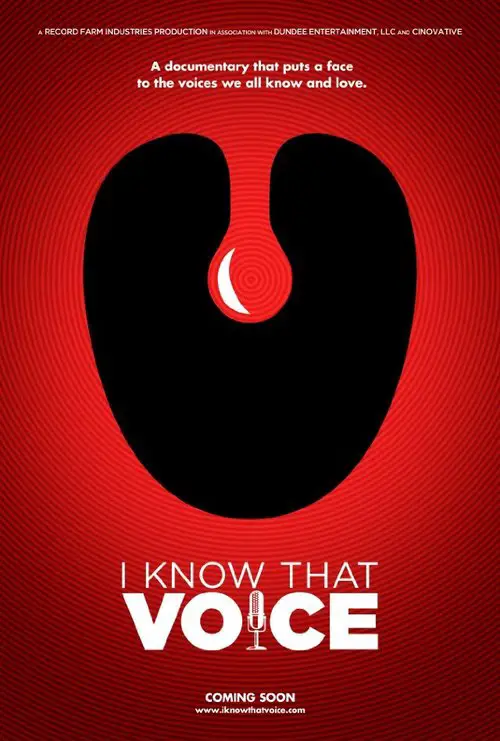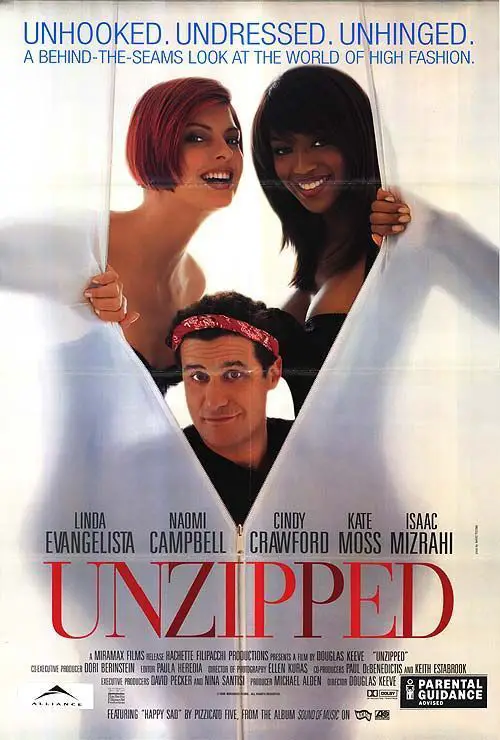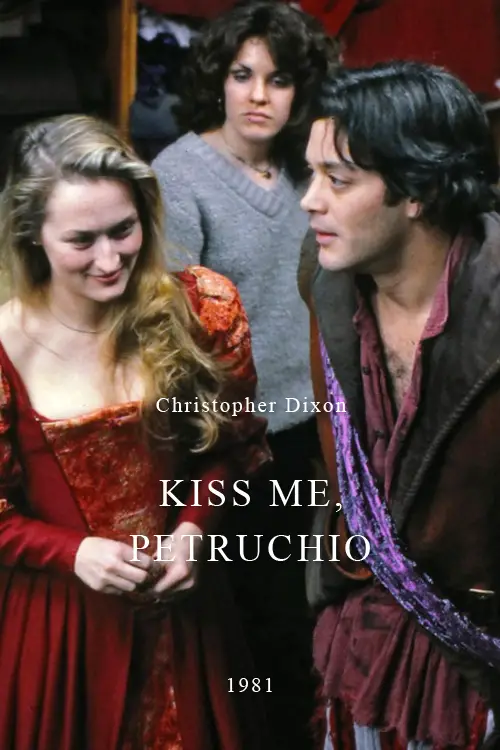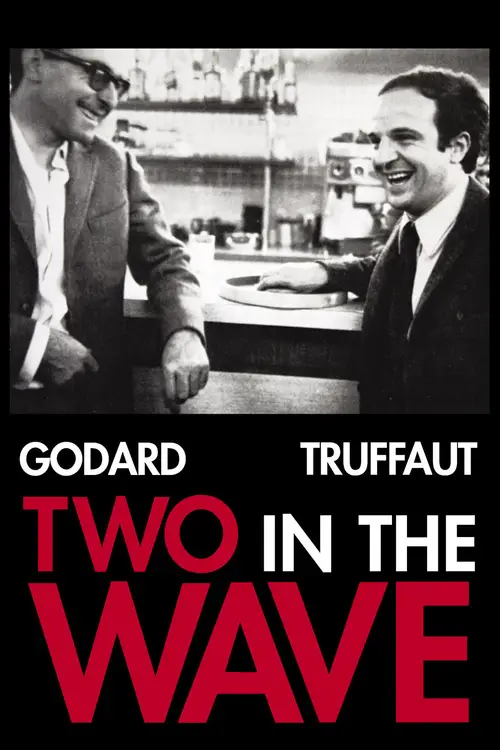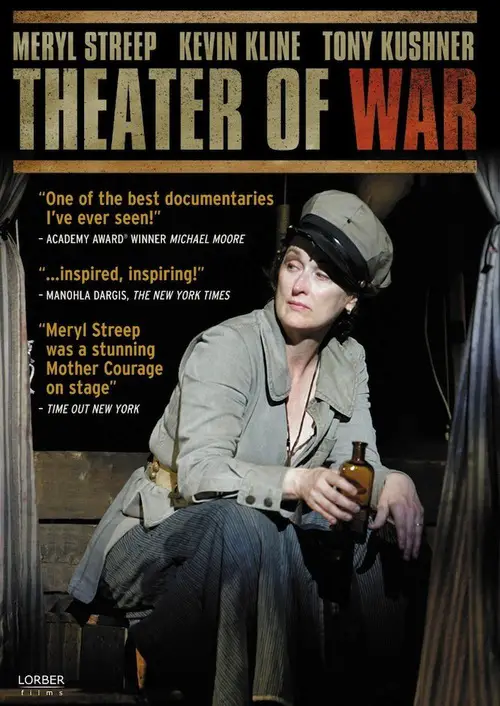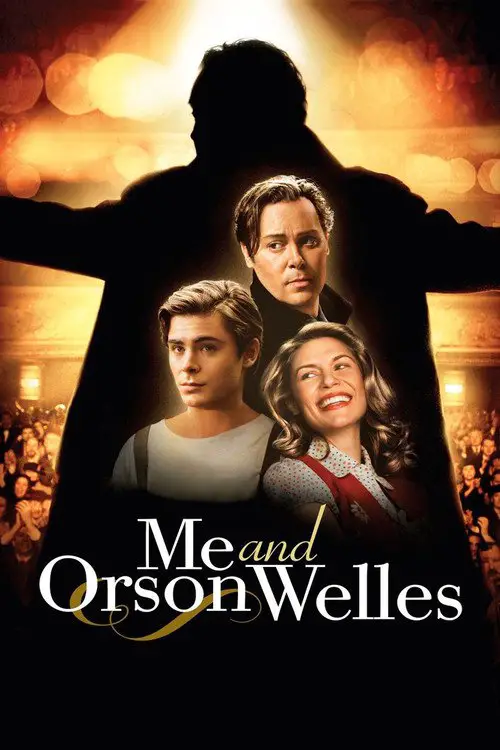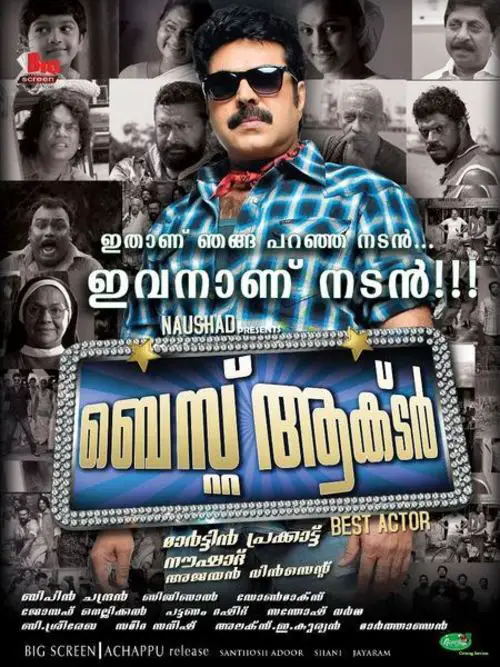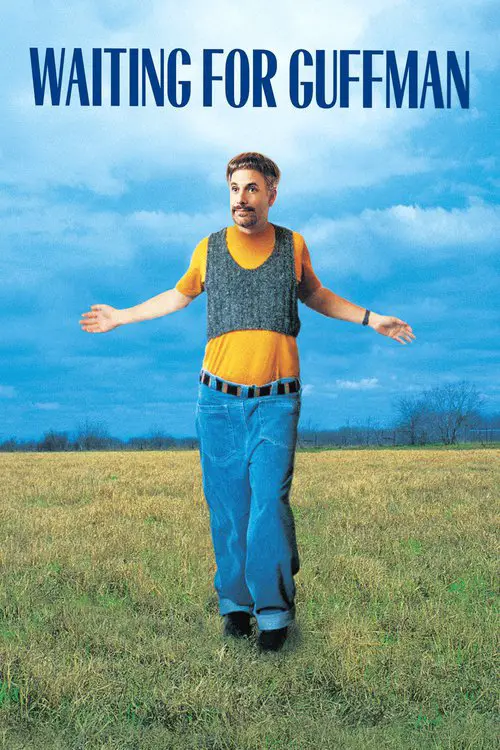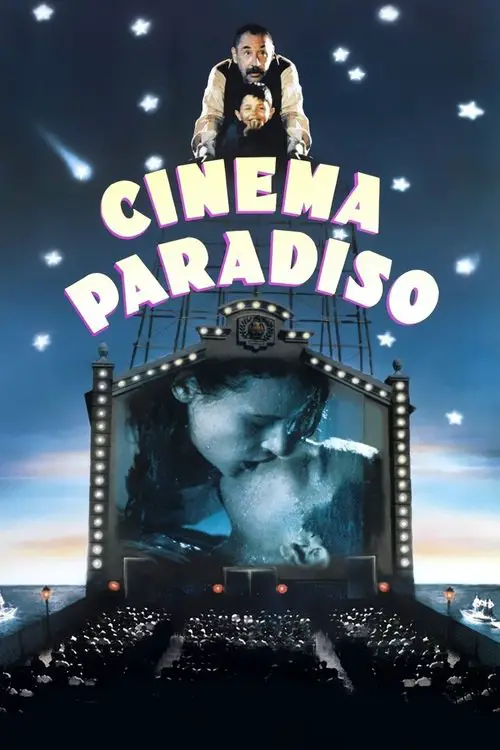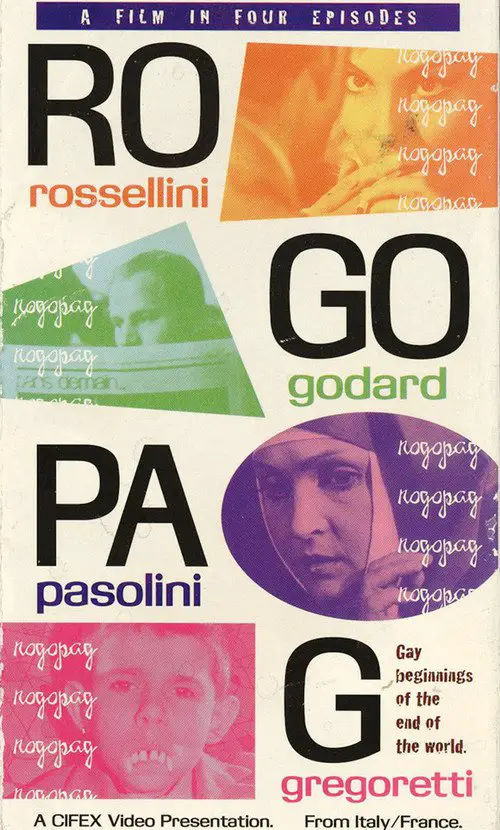Magician: The Astonishing Life and Work of Orson Welles (2014)
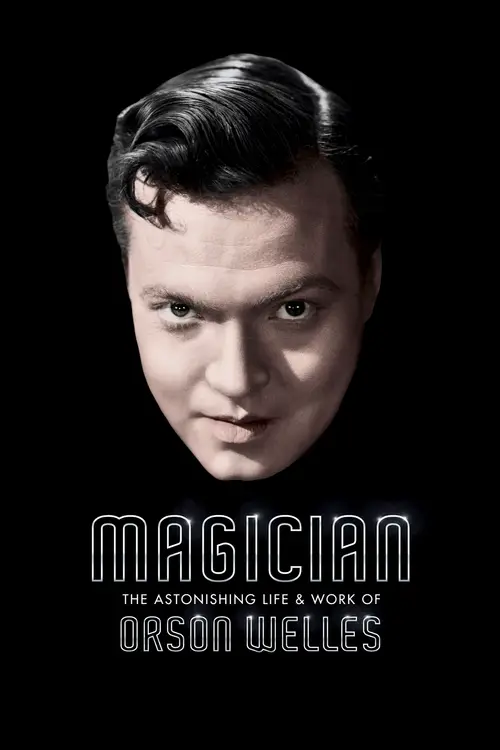
Similar movies
In this filmed version of cult film director John Waters' popular one-man show, the Pink Flamingos and A Dirty Shame director takes the stage to discuss everything from his early influences, fondest career memories, and notorious struggles against the MPAA rating system. Part endearing memoir and part hilarious lecture, This Filthy World touches on everything from the insanity of contemporary pop culture to the director's unforgettable early collaborations with inimitable Pink Flamingos star Divine.
This historical and critical look at slasher films, which includes dozens of clips, begins with "Halloween," "Friday the 13th," and "Prom Night." The films' directors, writers, producers, and special effects creators comment on the films' making and success. During the Reagan years, the films get gorier, budgets get smaller, and their appeal wanes. Then, "Nightmare on Elm Street" revives the genre. Jump to the late 90s, when "Scream" brings humor and TV stars into the mix. Although some criticize the genre as misogynistic (Siskel and Ebert), most of the talking heads celebrate the films: as long as there are teenagers, there will be slasher films, says one.
A Chadian film director who lives and works in France (Haroun) returns home upon the death of his mother. He is shocked at the degraded state of the country and the national cinema. The filmmaker decides to make a film dedicated to his mother entitled Bye Bye Africa but immediately encounters major problems. Cinemas have closed and financing is impossible to secure. The director reunites with an old girlfriend (Yelena), who was shunned by Chadians who could not distinguish between film and reality after appearing in one of his previous films as an HIV victim. Haroun learns about the destruction of the African cinema from directors in neighboring countries, but also finds Issa Serge Coelo shooting his first film, Daressalam. Things go badly and, convinced that it is impossible to make films in Africa, Haroun departs Chad in despair, leaving his film camera to a young boy who had been assisting him.
With commentary from Hollywood stars, outtakes from his movies and footage from his youth, this documentary looks at Stanley Kubrick's life and films. Director Jan Harlan, Kubrick's brother-in-law and sometime collaborator, interviews heavyweights like Jack Nicholson, Woody Allen and Sydney Pollack, who explain the influence of Kubrick classics like "Dr. Strangelove" and "2001: A Space Odyssey," and how he absorbed visual clues from disposable culture such as television commercials.
This documentary depicts the filmmaker Alejandro Jodorowsky talking about his life, his loves, his career as a filmmaker, graphic novelist, and workshop leader, and his eccentricities including tarot reader and theatrical director during The Panic Movement. Directed by Louis Mouchet, La Constellation Jodorowsky includes a lengthy on-camera interview with Jodorowsky in Spanish with subtitles. Marcel Marceau, Fernando Arrabal, Peter Gabriel, Jean "Moebius" Giraud, and Jean Pierre Vignau make appearances discussing their various projects with the director. In addition to the interview and film clips, Mouchet features some bizarre footage from Jodorowskyâs absurdist plays in which topless women splattered with paint writhe around the stage in a theatrical production meant to represent The Panic Movement, i.e., an artistic expression in which reason cannot fully express the human experience.
Documentary about the film maker Luis Bunuel. Surrealist master Luis Bunuel is a towering figure in the world of cinema history, directing such groundbreaking works as Un Chien Andalou, Exterminating Angels, and That Obscure Object of Desire, yet his personal life was clouded in myth and paradox. Though sexually diffident, he frequently worked in the erotic drama genre; though personally quite conservative, his films are florid, flamboyant, and utterly bizarre. This documentary, directed Jose Luis Lopez Linares, tries to illuminate some of these contradictions.
Filmmaker Kimberly Reed returns home for her high school reunion, ready to reintroduce herself to the small town as a transgender woman and hoping for reconciliation with her long estranged adopted brother Marc. Things are complicated by the shocking revelation that Marc may be the grandson of Orson Wells and Rita Hayworth, forcing Kim and her family to explore questions of sexual orientation, identity, severe trauma and love.
Director Martin Scorsese speaks candidly and passionately about one of his formative filmmaking influences: the late Elia Kazan. Utilizing precisely chosen clips from Kazan's signature films including "On the Waterfront," "A Streetcar Named Desire," "Gentleman's Agreement," "Baby Doll," "A Tree Grows in Brooklyn," "A Face in the Crowd," "America, America," and "The Last Tycoon," and interview footage of the director himself, co-directors Scorsese and Kent Jones recount the director's tumultuous journey from the Group Theatre to the Hollywood A-list to the thicket of the blacklist. But most of all, they make a powerful case for Kazan as a profoundly personal artist working in a famously impersonal industry.
Giant of cinema, the embodiment of creation, Orson Welles is the man who reinvents the film language at 24-years old. Who is hidding behind this impressive figure? This movie is a journey towards the man behind the legend. It drags us into the labyrinth with multiple mirrors that Welles erases and recreates at the mercy of his imagination.
For 35 years Clint Eastwood has called Warner Bros. home. In The Eastwood Factor (Extended Version), film historian Richard Schickel ventures beyond Eastwoodâs tough, iconic screen personas to reveal the easygoing and thoughtful man behind the magic. Morgan Freeman narrates this insightful profile that features memorable film clips and visits to movie locations, the Warner Bros. lot and Eastwoodâs hometown Carmel where, with humor, candor and intelligence, Eastwood illuminates the craft behind his legendary work on both sides of the camera to create a rare experience that is pure, unadulterated Clint.
This unauthorized documentary flashes back to the incarnation of Marilyn Manson and the Spooky Kids and chronicles their controversial trials and tribulations. Included are shocking, first-hand testimonials and outrageous home video from those who were closest to Brian Warner (a.k.a. Marilyn Manson) in his local band-based town of Ft. Lauderdale. This title carries a parental advisory.
This documentary recounts the life and work of one of most famous, and yet reviled, German film directors in history, Leni Riefenstahl. The film recounts the rise of her career from a dancer, to a movie actor to the most important film director in Nazi Germany who directed such famous propaganda films as Triumph of the Will and Olympiad. The film also explores her later activities after Nazi Germany's defeat in 1945 and her disgrace for being so associated with it which includes her amazingly active life over the age of 90.
The Real Bruce Lee is a martial arts documentary. It begins with a brief biography of Bruce Lee, and shows scenes from four of his childhood films, Bad Boy, Orphan Sam, Kid Cheung, and The Carnival, each sepia-toned and dubbed to English. Next, there is a three-minute highlight reel of Lee imitator Bruce Li. Finally, there is a feature-length film starring Lee imitator Dragon Lee, which is obviously modeled after Bruce Lee's Fist of Fury.
Thom Andersen's remarkable and sadly neglected hour-long documentary adroitly combines biography, history, film theory, and philosophical reflection. Muybridge's photographic studies of animal locomotion in the 1870s were a major forerunner of movies; even more interesting are his subsequent studies of diverse people, photographed against neutral backgrounds.
Within the world of theatre the rehearsal room is a sacred space -- the private domain where boundaries are pushed, risks taken, mistakes made, vulnerabilities exposed and, at its very best, magic created. It's not a place into which the public is often, if ever, invited. Until now; In The Company of Actors features an ensemble of Australia's finest actors, including Cate Blanchett and Hugo Weaving, as they prepare to perform the Sydney Theatre Company's production of Hedda Gabler, at the prestigious Brooklyn Academy of Music in New York. Opening night is just five weeks away and the pressure is on.
Near Trianon, the young Queen Marie-Antoinette built a small and secret theater, to act and sing herself with friends and family. The little theater is still there, newly restored. For the first time since the XVIII century, opera arias and symphonies by Gretry and Gossec, two of the queen's best composers, are played with ancient sets and instruments. A cycle of late 18th century music, programmed by the Baroque Music Center of Versailles, showcases the finest compositions of the musical repertoire played in Paris, under the influence of Marie-Antoinette, during the reign of Louis XVI. The Center joined with French-speaking musicians from different horizons, giving pride of place to the great French-Walloon composers, Andre-Modeste Gretry and Francois-Joseph Gossec. Both enjoyed major careers under Louis XVI: the first built his reputation on his comic operas, which Marie-Antoinette greatly admired; the second came to be considered the true father of the French symphony.
Shot in France, England, Switzerland and the United States, this documentary covers director Alejandro Jodorowsky (El Topo, Holy Mountain, Santa Sangre) and his 1974 Quixotic attempt to adapt the seminal sci-fi novel Dune into a feature film. After spending 2 years and millions of dollars, the massive undertaking eventually fell apart, but the artists Jodorowsky assembled for the legendary project continued to work together. This group of artists, or his âwarriorsâ as Jodorowsky named them, went on to define modern sci-fi cinema with such films as Alien, Blade Runner, Star Wars and Total Recall.
Broadway Idiot follows Green Day's Billie Joe Armstrong from a punk rock concert at Madison Square Garden to the opening of his musical American Idiot on Broadway - only ten blocks away, but worlds apart. From behind the curtain share in the crazy journey of turning the mega-hit album into a punk rock musical - and ultimately see how the world of theater transformed Billie Joe.
In 1987, Eddie Lee Sausage and Mitch Deprey recorded the nightly squabbles of their over-the-top neighbors, homophobic Raymond Huffman and proudly gay Peter Haskett, and the chronicle of the pair's bizarre existence soon took on a life of its own. This darkly funny documentary checks in with former punks Eddie and Mitch, who detail their late-'80s Lower Haight surroundings, and surveys the tapes' influence on an array of underground artists.
This film of interviews with the film director Jacques Rivette was produced in collaboration with Serge Daney, film critic from âCahiers du cinémaâ, then of âLiberationâ. In the course of their conversations, the two speakers discuss Rivetteâs career, his relationships with the other film makers of the new wave, his use of âmise en sceneâ and his working with actors.
Balkan Baroque is a real and imaginary biography of the Yugoslavian performance artist Marina Abramovic. Rather than a mechanical reproduction of the artist's work, the film tries to create a new reality by translating the performances into cinematographic images that intensify the fictional context of the film. Abramovic plays herself, but ,appearing in multiple forms, blurs her own identity. Memories and fantasies intermingle with day to day rituals. The chronological narrative often breaks to reflect the interior voyage of the protagonist from the present to the past and back to the present. The result is a visually impressive film. Balkan Baroque had its world premiere at the International Film Festival Rotterdam, 1999.
Martin Scorsese narrates this tribute to Val Lewton, the producer of a series of memorable low-budget horror films for RKO Studios. Raised by his mother and his aunt, his films often included strong female characters who find themselves in difficult situations and who have to grow up quickly. He is best remembered for the horror films he made at RKO starting in 1940. Starting with only a title - his first was The Cat People - he would meticulously oversee every aspect of the film's completion. Although categorized as horror films, his films never showed a monster, leaving it all to the viewers imagination, assisted by music, mood and lighting.
Singer, songwriter, business man, family man, civil rights activist: Sam Cooke transcends all barriers of race, faith and talent. This first-ever biography of the definitive soul singer looks at his extraordinary career and personal life - from his gospel-singing roots through his R&B and pop music career.
Using a variety of cinematographic techniques, the world of high- profile fashion designer Issac Mizrahi is portrayed as being driven by excitement and creativity, despite the concomitant chaos and cacophony. Mizrahi's frenzied genius and rollercoaster emotions paint a humorous and personal portrait of a brilliant designer. Famous "SuperModels", actors, and actresses populate Issac's rarified world, but Douglas Keeve's cameras capture the stress and turbulence beneath the placid coolness of glamour. Written by Tad Dibbern
Me and Orson Welles is a period-drama film directed by Richard Linklater and starring Zac Efron, Christian McKay and Claire Danes. Based on Robert Kaplow's novel of the same name, the story, set in 1937 New York, tells of a teenager hired to star in Orson Welles' production of Julius Caesar, where he becomes attracted to a career-driven production assistant.
A troupe of struggling stage actors is rehearsing for a small-town production of a play. Everything seems to be as it should until one of the cast members turns up dead. In a panic, the others try to get out, only to find they are now locked in the theater with the killer! Which one of them committed the murder, and who will get out alive?
This consists of four short films by different directors. Rosselini's 'Chastity' ('Illibatezza') deals with an attractive air hostess who receives the unwelcome attentions of a middle aged American. Godard's 'New World' ('Il Nuovo Mondo') illustrates a post-apocalypse world the same as the pre-apocalyptic one but for an enigmatic change in attitude in most people, including the central character's girlfriend. In Pasolini's 'Curd Cheese' ('La Ricotta'), a lavish film about the life of Jesus Christ is being made in a poor area. The impoverished people subject themselves to various indignities in the name of moviemaking in order to win a little food. The central character is hoisted up on a cross for filming, and dies there. Finally comes Gregoretti's 'Free Range Chicken' ('Il Pollo Ruspante') in which a family of the materialist culture inadvertantly illustrate the cynical, metallic voiced doctrine of a top sales theorist.
© Valossa 2015–2026
| Privacy Policy
